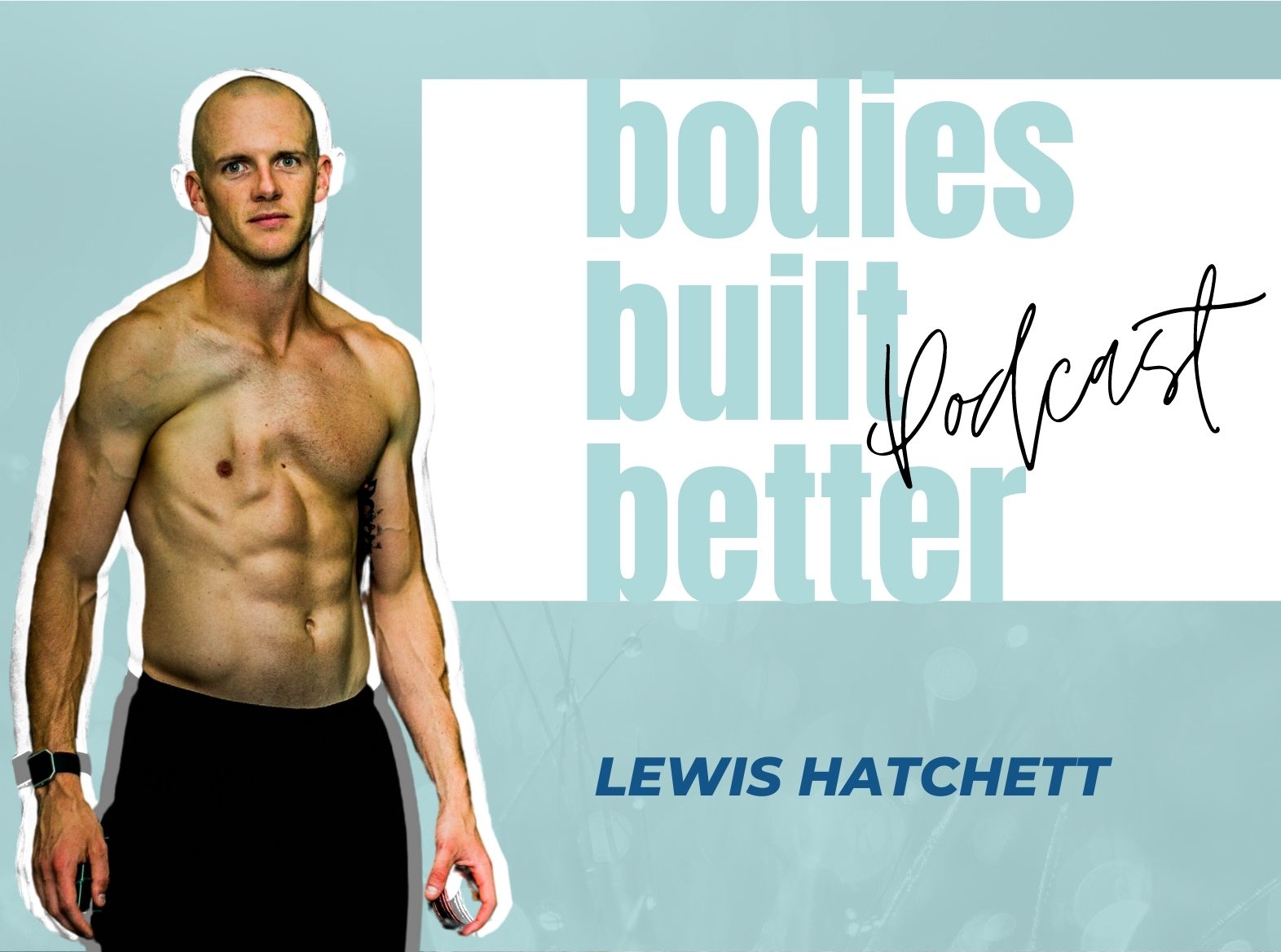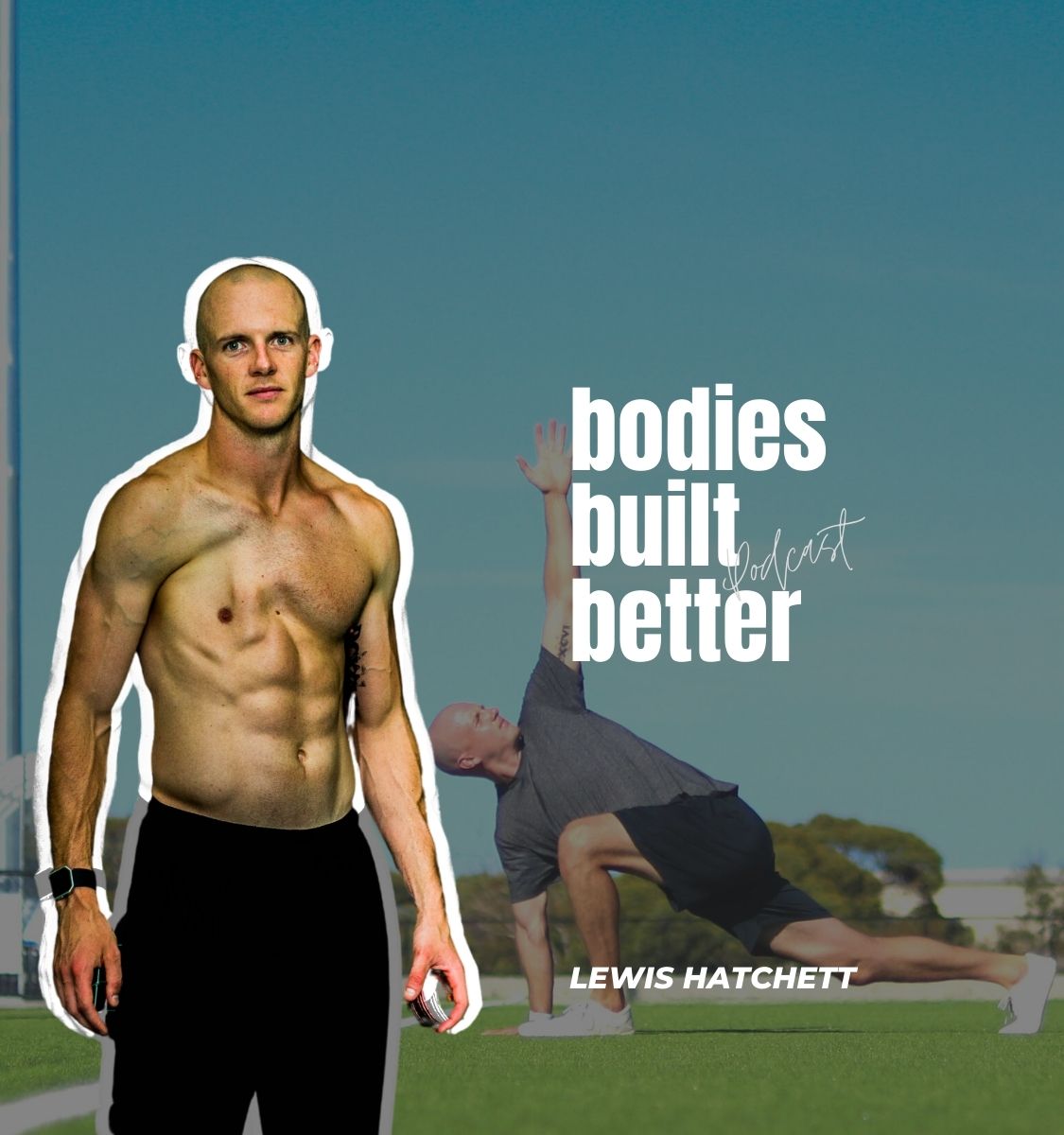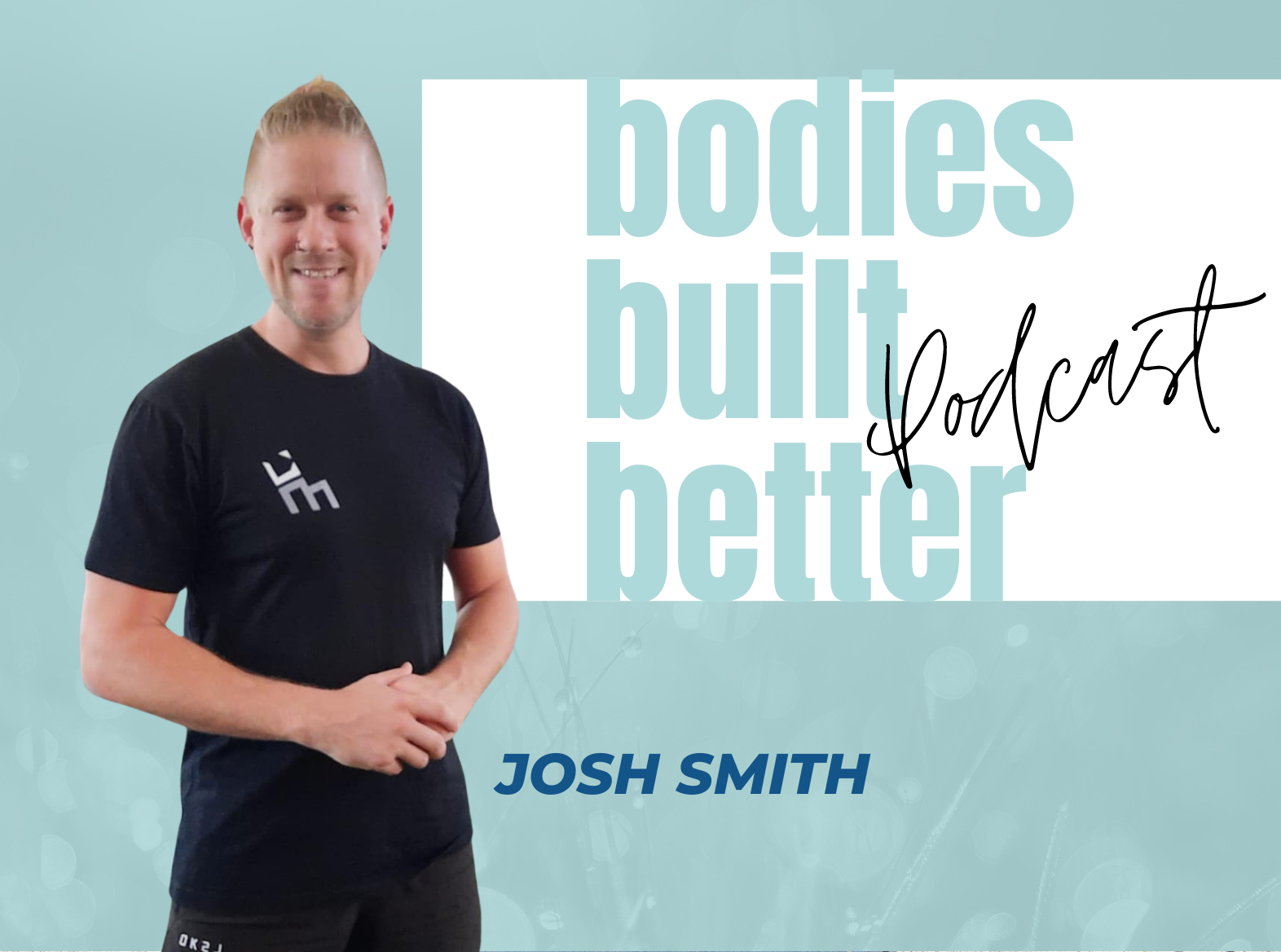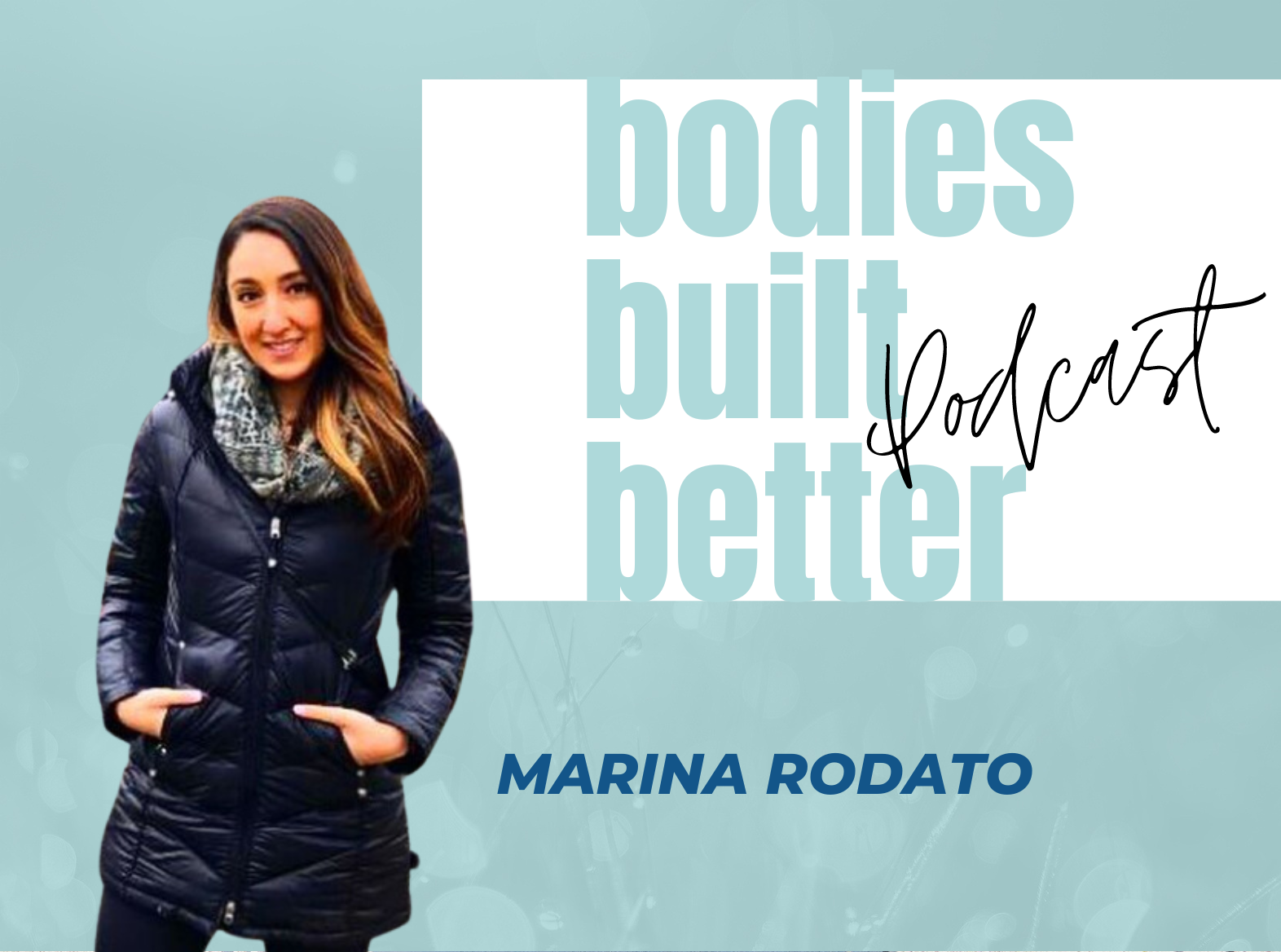Jackie 1:58
Lewis, thank you so much for chatting with me today. Welcome to the Bodies Built Better podcast.
Lewis Hatchett 2:04
No, thank you for having me. Excited to chat.
Jackie 2:08
I’m excited to chat. I heard your story a little while ago now. And it’s very inspiring. You’re an ex-professional cricketer. You’re a mindset coach. You have a podcast called Raising Your Game, which I’m a fan of.
Lewis 2:28
Thank you.
Jackie 2:29
Very yogi, with an app called Sport Yogi. So already that all sounds incredible. Side note, you have Poland syndrome. And I know a lot of people won’t know what that is. I didn’t know what that was until I read about you. But for those people who know what it is, they’ll also know how incredible it is, then you made it to become a professional athlete. And not only that, a professional cricketer. And to put things into perspective, in 2018, you even said, “Batting was the most vulnerable thing I could ever do. If I got struck, it could kill me.” Which is an insane thing to think about for anyone playing any sport recreationally or professionally in general. So to start this off, could you tell us a bit about what Poland syndrome is? And then how it’s affected you? And then how it affected you growing up?
Lewis 3:43
So it is, like you said, not many people may have heard of it. And I was, I guess the incredible fortune that I had to begin with was that the doctor that delivered me at birth actually did know what it was. So it is incredibly rare. It’s about one in 100,000 people will have it so anywhere between one in 20,000 to 100,000. There’s no known number. And it manifests itself completely differently for each individual that has it. So it tends to affect the right side, and can affect the left. It can create deformities in the hands, my hands are actually fine. But for me, it means that I’m missing my right pectoral muscle and two ribs that are directly behind it. So when I said about batting being really vulnerable. The reason is because the only thing that’s protecting my upper right portion of my lung or my upper right chest is just skin. So there’s nothing really […] Now if anyone knows cricket, cricket balls are really hard. And when you play professionally, they travel obviously 90 miles an hour and not only do they just friggin hurt when you get hit, they can break bones. But for me, if it was to hit me in that area, it would just and it could be anything from sort of punctured lung, deflated lung, to that sort of catastrophic injury, but on the day of my birth, the doctor that literally delivered me took one look and went, “Oh, he’s got Poland syndrome.” And that was really fortunate because it wasn’t until like, 20 odd years later, I didn’t meet another doctor that knew what it was. And the day of again, day of, my birth, my mum, my dad were like, super interested, were trying to find out what it was how? Because it wouldn’t have come up on scans and things like that. “So what, what is it? How does it, what does it mean?” And the doctor actually said, on the day of my birth, he was like, “Well, it’d be fine. But he won’t be able to play many sports.” And dad sort of rattled through a list of sports because I was the firstborn son. And he was like, not rugby, cricket, won’t be able to play those because he won’t be able to like be won’t be able to be a bowler, he won’t be able to move his arms in the right way. And yet 20 years later became a professional bowler.
Jackie 5:54
“So I’ll show them.”
Lewis 5:57
Yeah, but the way it sort of manifests itself for me on a day to day basis. I think growing up, I didn’t really know. And everyone asks me, What does it feel like? And I’m like, What does your body feel like? And I don’t know any different. And growing up, I really didn’t know any different because you’re a young child, you’re not very strong. Essentially, I was just a little skinny, scrawny kid that loved it running around. Exercising, my brother is 14 months younger than me. So we’re very, very close in age, we’ve actually very similar builds, the condition is not–he doesn’t have it. It’s not like hereditary, it’s just completely random. There’s no cause to it, there’s no there’s no known cause. It’s just chance, like it’s a slight deformity that happens. But as we’re growing up, we’re both competing like two siblings normally would constantly trying to beat each other, everything might be football, golf. And then my grandfather introduced me to cricket in the garden. And like I said, I didn’t really know how my body felt. I didn’t know any difference. Because you’re at that young age, you’re just doing things, you’re just living in the moment, you’re just absorbing everything. And that’s what I did. Like I just took on everything. So when my granddad hands me a cricket ball or a tennis ball and gives my brother the bat, like we just start learning and playing in the garden, like any sibling would, I just didn’t consider that mum and dad [would] sort of watch and go, “He’s doing okay, like that. Let’s carry on.” So that just carried on becoming a thing. And I played every sport that I could possibly get my hands on. The only one I really didn’t play was rugby because that was what mum and dad drew the line at. They were, like, “That’s actual physical contact that we don’t know the consequences or outcomes that could come from that because someone is trying to hit you.” So I didn’t box. I didn’t do any boxing, which is annoying because I’m like a big fan of boxing and MMA and I love watching it. I just never was able to do it. I’m thinking of trying jujitsu soon. So that’s one that I’m working to get? Yeah, I really want to get into jiu jitsu, it lends itself lovely to the work that I’m doing and the realm that I’m in. So that is something I’m really excited to try and do. But growing up, it was a case of just rugby being the one that was not on the list. It was like that was fine. Stop basketball for a bit. But then I played a bit of basketball, it was absolutely fine. And ultimately it was built off the back of if I can build the skills to manage myself in the environment, then I should be okay. And ultimately, mum and dad would, like, let me go and do something. And then there’s not the sounds like you had a strategy, but then would assess it, and be like, he’s doing okay, carry on. And they never really held me back and created a bubble to protect me because I think, and I always do say, my younger brother Brad was a fortunate thing to happen because I had a yardstick that I could gauge at home. Like we would wrestle at home, we would fight, we would play games, we’re best mates. So it was something that they could see or he can be around everyone else. That’s “normal,” in inverted commas. So yeah, just growing up was a not as normal experience as you could possibly have as a child had a great childhood. And there were probably no issues that started to arise until I started to get into my teens.
Jackie 9:26
Well, that segues perfectly. What, when was the first memory of realising that you were different or it did start to affect you in ways that you hadn’t prepared for?
Lewis 9:42
So I think everyone will get into their teens and then you start to become more body aware. You’re starting to live in that shell for a few years now and you’re starting to understand it. And I did know there were moments like when I was at a swimming pool, I notice I know it’s different. It looks different. My parents wouldn’t shy away from it, they wouldn’t hide it from me, they would talk about it and, and I, I just you start to notice that body’s changing and you want, you want yours to maybe look a certain way you’re trying your best. But I think for me, there was just a moment in time. And funnily enough on my podcast, I’ve spoken to Jason Gillespie, the former Australian test cricketer. And it was a moment in time where I saw Jason Gillespie in the flesh. And like, my parents told me that there was this driven moment where I just stamped my fists on the table and said, I want to be a professional cricketer. Because I’d been playing cricket at a local level, we joined a club, my school didn’t even have cricket. So I went to a state school here in the UK, we didn’t have cricket, it was a big football and rugby school. But cricket, there was no equipment whatsoever. But when I was on this holiday, and I saw Jason Gillespie I, I was like, that’s what I want to do. I’d been going to professional games to watch as a fan like here locally, in Sussex in the UK. And then when I saw him, I was like, I just want to be like him. And that was a defining moment. I told him that story in the podcast, which is quite interesting, I’d never got the chance to tell him but it was that moment that was like, “I’m going gung ho for this, this goal. And that’s what I want.” So at the time, as those insecurities were really starting to develop, it was kind of pushed aside by the fact that I want this goal, I want to achieve this certain thing. So like my goal at the time was to get into the junior age group set up for the county side here stateside in Australia. And I was 14, 15. So I was like, I want to get the under 15 team. And I remember going to those trials, I remember going to the six week camp, essentially where they select players and about 100 kids were turned up over that six week period. And I remember turning up and being like, Oh, my God, there’s kids coming from private schools, they’ve got all the best kit. There’s, they’re bigger, stronger than me. They’re faster, they’ve got better skills than me, because they’ve had better coaching, they’ve had more coaching. And as I’m so far out my depth here that this is crazy. And that brings a level of insecurity. But the first thing I did was I could either dwell on that insecurity. And all of this that I’m saying was not a 14 year old that had the conscious awareness to do the things that I’m about to say. It was sort of in reflection that I’ve recognised what I did. And I sat there and said, well, with a bit of help from my parents to sort of nudge me in the right direction. I can either choose to watch these kids that are better than me, and bigger and stronger, go off and get those places. Or I can try and stand out in some way I can try and be different. And for me that was just asking questions. It was in those trials, I was just like nagging the coaches, what can I do better? How can I? How can I improve here? What can I do to be like them? How do I learn that? And it was just an idea of getting in their faces. So they recognised and they were talking about me whether it was good or bad, I didn’t really mind. But ultimately I was going to learn as well, I was going to find out how those kids that were doing the best or looking the best were doing what they were doing. And I would get that knowledge. Then at the end of this trial period, it comes where that 100 kids get whittled down to 15 and selected for the squad. And it was pretty brutal. Like they just get you in a room and they read the team sheet out. It’s probably like an email or text now where it’s just like you made it or you didn’t. But it’s like reading through the names at the time. And it’s like one to get down to like 10, 11, 12, 13, 14, 15, Lewis Hatchett, you’re in. And I was like, wow, got in. So I’m representing the county now. I’m technically one of the best 15 players in cricket. And I think just all of that perseverance and asking them questions, putting myself forward had hidden the fact that my condition was an underlying thing. I knew that they probably didn’t know about it, because I never made anyone aware of it. My parents wouldn’t go up to the coaches and be like, can you be a little bit easier on Lewis, he’s got xyz. I think even though I don’t really remember, as a young kid, because it was still hard ball cricket, I don’t remember wearing a chest guard. I don’t remember doing that until I was more of a teenager and a sort of adolescent, about 17, 18. And I don’t really remember wearing one then, which was kind of wild because we’re still playing with a cricket ball. So I’ll get into that squad, I get into that age group. And this is now like the seasons happening. It’s like a regular season and you play the games throughout the summer. And there’s probably about 10 games that come up. And in those 10 games, it would be pretty cool. Like a letter would come through the door and it was the team that had been selected, and if anyone knows cricket, 11 play. So out of that 15 four of them are going to sit out and just be like waterboy and for me I was one of those four. Every time it would come through I’d be so excited that the stamp was on their licence. Sussex badger. I’m super excited for the game and bang on, like 14th, 15th player. And I was 15 years old and my dad was like “you’re not getting an opportunity, you’re not getting the chance to show them what you can do. You need to stand out again, because that summer would just pass and if you don’t get game time, you’re not going to be able to show them what’s possible,” and I could tell they didn’t really rate me. So going through that whole season, not getting games, gotta find a way to stand out. Dad just said, “You’ve got to ring the head coach to go and train with the pros.” So I was like, “What do you mean?” He goes, “Here’s the first team coach, like the Men’s Pro squad coach. I found his number. Here’s the phone, his number, don’t come out of that room until you’ve got an answer of whether you can go and train with him tomorrow.” I’m a 15 year old kid sitting in my parents bedroom, quivering with fear, dialing this number, practising my lines, messing my lines up, then–
Jackie 16:05
Everyone quivers with fear with the thought of calling anyone these days.
Lewis 16:10
Yeah, like a cold call. But this was a cold call to like the coach of a team that I was trying to get autographs of the players the night before.
Where to find Lewis:
Website: www.lewishatchett.com
Instagram: @lewishatchett
Instagram: @sportyogi
You Tube: Lewis Hatchett
You Tube: Sport Yogi


